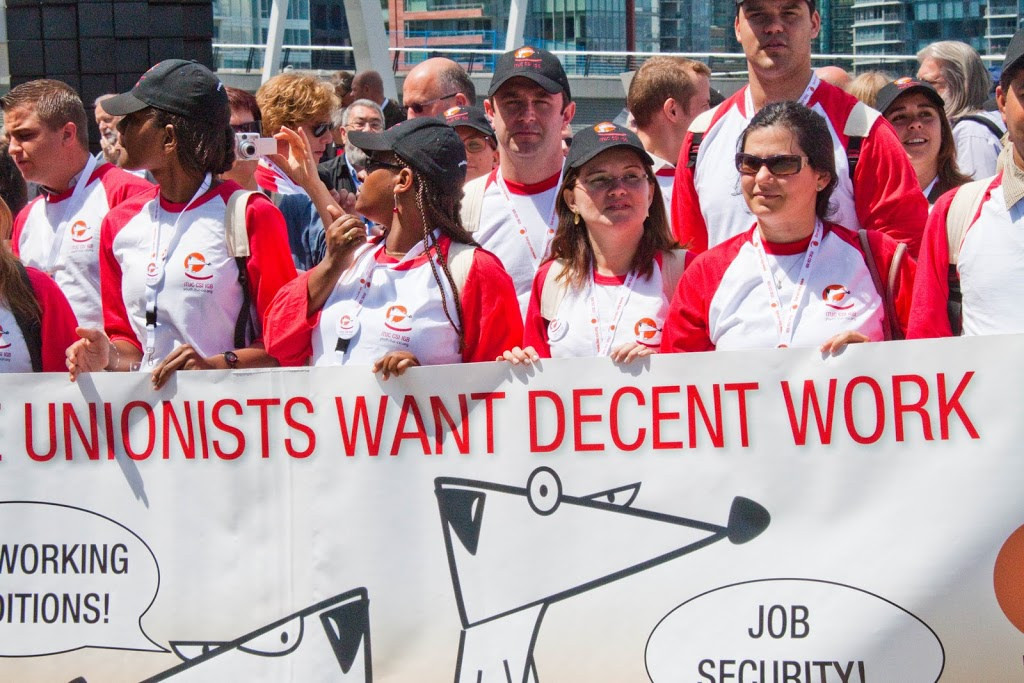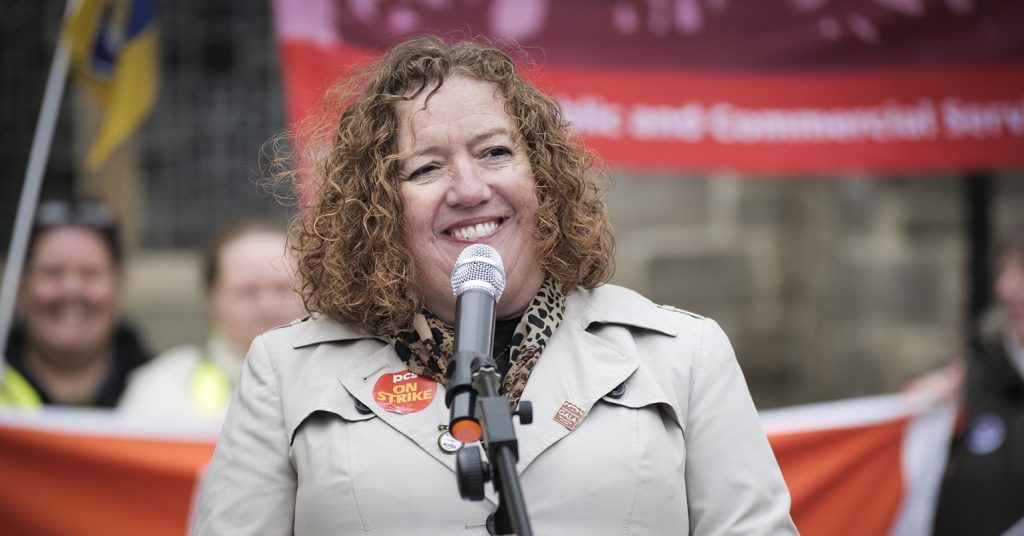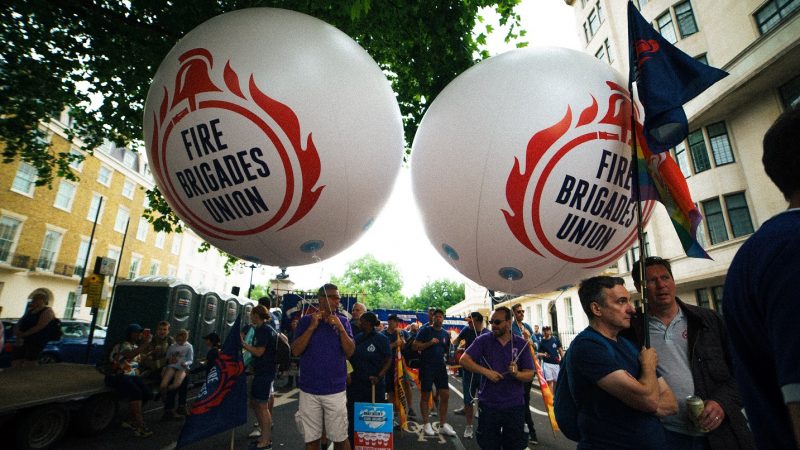On post-Trumpism and workers’ collectives

For a long time, until about four years ago, I worked in an organisation committed to international development and transforming the world, one person at a time, yet the culture of the organization was decidedly middle class. About six years ago, a small group of us decided to revive the organisation’s dormant trade union: we looked up our regional Unite rep and stated our intention to become more active.
He was a straight-talking rather angry man who had been doing union work for decades and knew all about it; from the history of our own organisation’s struggle for workers’ rights to the theory of international worker’s solidarity, to the smallest tricks and tactics of the trade. The first thing he did was to put us through a two-day course in what it means to be a shop steward – and it was an eye-opener. For someone raised in Eastern Europe as a Marxist (by necessity and not out of conviction), it was my first encounter in a Western European country with people who believed in the same things that I had learned in my childhood – workers’ rights, the class system, the ways in which management tries to exploit you and how you can resist. What followed in the next couple of years was my first experience of what it means to create and nurture a workers’ collective.
We started to get organized, called union meetings, recruited new members, polled them on issues important to their rights, represented them in disciplinary meetings, resisted management’s push for zero pay rises. It was exhilarating to sit in salary negotiation meetings, in a small meeting room across from three senior managers, look across at my union mates and know that they thought what I thought and that we were – well, united. So we would say ‘no, we won’t accept a 1.5% pay rise, we have done the sums and our research and we know that you can afford at least 4%’. In the end they would back down at about 3% and we would score another small victory.
Our tiny group of shop stewards was very diverse – including black, gay, women, men, owning, middle and working class, Eastern European. All the while we were not only fighting for worker’s rights and providing sorely needed emotional support but raising our consciousness and gaining an understanding that one person’s problems with management were not their individual failing but part of a structural reality that included sexism, racism, disability oppression, and many other inequalities. Within a year or so we became a force to be reckoned with.
But as soon as the Tory government started getting its feet under the table, and pushing a new ‘strategic direction’ of efficiency and value for money onto our government-dependent NGO, we were the first to feel the heat. New middle managers turned up who talked the talk of shiny advocacy campaigning with no substance, or did the bidding of Mr Cameron’s Big Society brainchild. Hot-desking in a shiny new office became the norm and working from home was all the rage. New management swiftly moved in to sideline or sack most of the people in the organization who were ‘old school’ and they came for the union first, sacking or paying off most of us who then went on to, as they assured us, ‘bigger and better things’. In the process, what was lost was not only individual people with huge talent, but also the spirit of the workers’ collective who understood that we were part of a bigger reality than our own successful individual middle class careers.
A couple of months ago at a conference co-organised in Budapest by the Progressive Hungary Foundation, the European Greens and DiEM25, I had an ‘aha’ moment when Florentin Iancu, a Romanian IT union organizer from my own home town shop steward finally put my experience in the widest possible context. He spoke about how in Eastern Europe, capitalism had replaced solidarity for working class people with a belief in individualism and competition – including making it appear that whatever difficulties people had were their own personal failings rather than structural.
He described my own formative years: how after 1989 an Eastern European culture of solidarity was warped by multinational companies into one of boundless opportunities. We were now no longer bound by the old stifling group mentality, but were free to venture into the brave new world, ‘every man – or even woman – for him/herself’. But only if you were young, dynamic, could speak languages and were willing to neglect your family and friends, social justice issues and principles for only a few years until you had finally made. The rewards were many and oh so attractive: you could see the world, could enjoy new clothes, be uplifted by drug-fuelled parties and festivals, be educated at the best Western European universities, enjoy high culture, go on company outings to interesting places, even become famous in a small way, in summary, get access to resources that so far had been denied to your part of the world, including access to (neo)liberal ideas and a culture of diversity and entitlement for all. In the process, what was lost to Eastern Europe was not only individual people with huge talent, but also the spirit of the workers’ collective who understood that we were part of a bigger reality than our own successful individual middle class careers.
Of course, some decided that they did not like the new system much and reverted back to Christian religion, some traditional churches but others new and evangelical, or even New Age. These all offered community, comfort, salvation, economic and social advantages, a chance for your own group to rise above others and feel that you had the answers to life’s problems. It offered or at least seemed to offer refuge from some of the new phenomena like addictions, drugs, pornography; reminded people that God loved them and in many cases that they were the chosen people. It asked only that you stay away from other people who had chosen differently, unless they were willing to join the flock, and that you did not ask too many questions or venture too far out of your comfort zone. In the process, what was lost was not only individual inquisitive minds, but also the spirit of the workers’ collective who understood that we were part of a bigger economic and social reality than our own successful individual nuclear families living in a comforting bubble of like-minded people.
These days, I have the privilege to work and hang out with a remarkable group of Romani activists. They are the ones targeted for destruction by this society, and they feel it every day, from being spat at on the bus by their fellow travelers, to not being allowed into clubs, to being told that the job they applied for no longer exists, to their children being sent to schools for the mentally retarded without the parents being consulted, to being cynically exploited by the aid industry, to being evicted from their homes because of plans for a new stadium, and sometimes to being killed in open gun raids by proto-fascist groups. Of course it happens more to those whose skin colour is darker, but then everyone has someone in their family whose skin colour is darker. A handful of the activists have finished high school. Their leader is also not college educated but has learned everything there is to learn about being a social worker, a human rights lawyer, a community organizer, a civil rights activist and more. He cannot speak languages, but he knows all there is to know about all the major thinkers in anti-racism work, having made it his mission to read all the books out there. Given the state of the economy and the discrimination they all face, almost everyone lives on the breadline or survives on temporary contracts. They have worked out how not to trust society’s structures and reject offers of money from governments who would coopt them to make it seem like racism is less bad than it is.
They are organizing their own struggle for Roma rights one person at a time, democratically; they help each other when times are tough – when people end up in hospital they are there, when people’s relatives die at an early age they pay for the funeral, when someone needs a new buggy for their child they throw together the money for it, when someone is discriminated against they stage a demonstration of a few thousand at a moment’s notice. In the process, they educate, question and correct each other – perhaps you should be less sexist next time and help your wife with the dishes; perhaps the rumours you hear about a Jewish conspiracy are not true; remember that Muslims are people like ourselves and that LGBTQ folks are your brothers and sisters, and anyway we have some of them in our midst. As a matter of policy, they consciously reach out to other movements – LGBTQ people, feminists, homeless people, refugees, Jews, and support those struggles because as a group, they know they cannot win the bigger struggle without everyone else winning theirs. In the process, what has been gained is not only individual questioning minds or individual people of huge talent, but also the spirit of the workers’ collective who step by step understand that we are part of a bigger economic and social reality than our own individual lives and our comforting bubble of like-minded people.
These days, if you are a Trump supporter, you could be led to believe that a self-made big man individual like Trump will sort it out for you because he is the embodiment of the American dream. If you are a Clinton supporter, you could be led to believe that the highly educated liberals can change the world, leaving out huge numbers of the racist white misogynists, at least some of whom but of course not the majority may be working class or Christian. Yet what I think will carry the day are our union or community organisers; who decline to defect into a better deal for themselves or their families and stay to fight the good fight with their people; who spend their time building up workers’ collectives in wider and wider circles; who never stop reaching out and doing their own painstaking consciousness-raising work, one person at a time. Who dare to listen to and engage with those who are wildly different from themselves without losing their own beliefs in the process.
I am confident that this is our new post-Trumpish reality – and that the power within it will very soon become obvious to most of us. Because, as Black Lives Matter reminds us, we have a movement, ‘we are leaderful’ and we have policies. And as someone recently said to me, ‘the rigidities of the old way of thinking will not prevail because they simply don’t actually work anymore’.




What an opportunity you have had to meet people.
I will look now for an other things i can read
Thanks for this Violeta. I loved the information and it’s illuminated several things for me. As an old Marxist activist from the 70s and 80s in the UK I recognise the false dreams we have been offered and how they have weakened the vision and experience of collectivism.
Thank you Violeta for this clear insightful posting. You cut through the noise and confusion powerfully